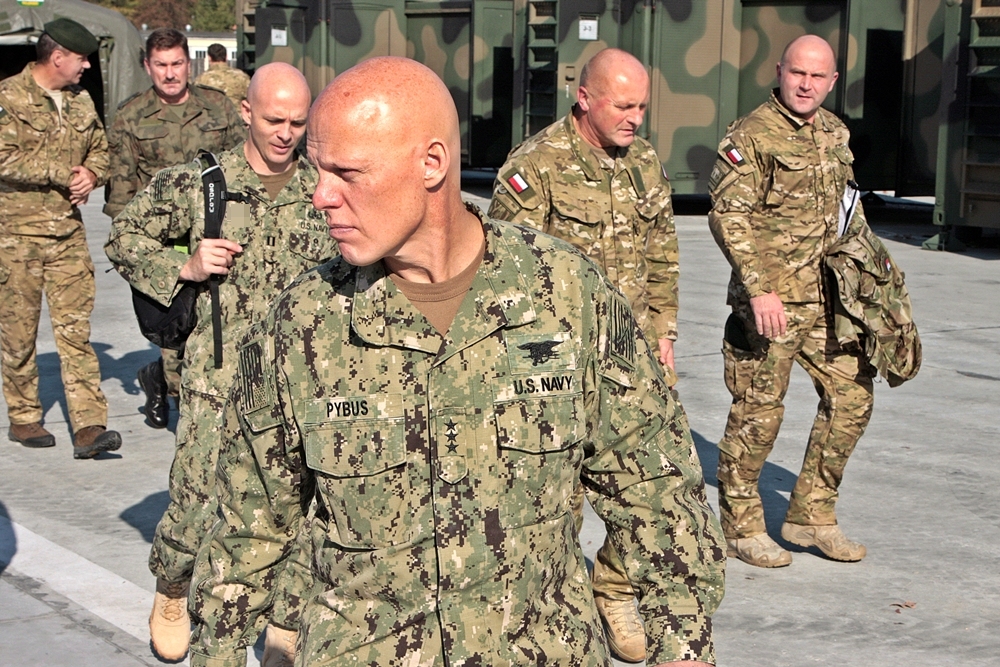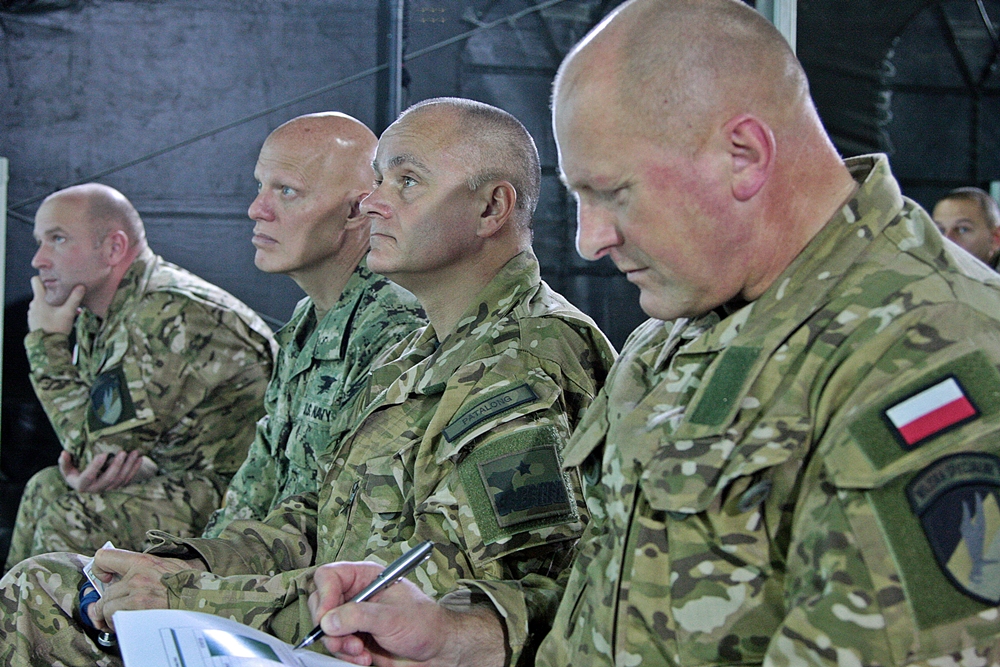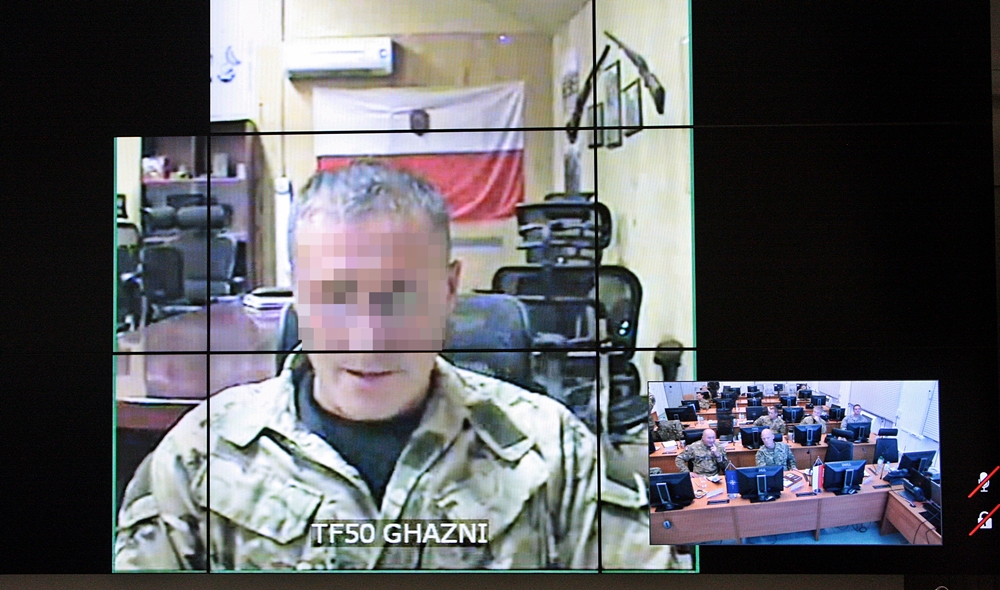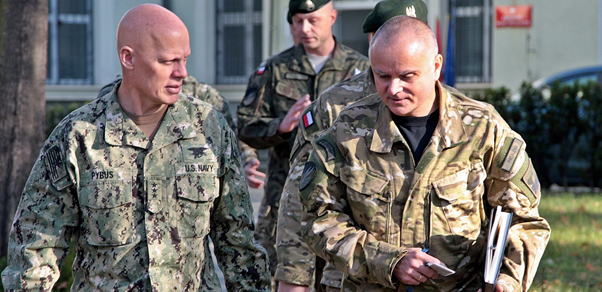Vice Admiral Sean A. Pybus commander of NATO SOF finished his visit to the Polish Special Operations Forces Command (DWS) based in Krakow. It was his first trip to Poland since he assumed the duties as Commander of NATO Special Forces (NATO Special Operations Forces Headquarters – NS HQ ) in June this year.
On October 22 the American guest had the opportunity to personally inspect the preparations of Polish commandos for duty as part of the NATO Response Force – NRF. During the meeting at the Combined Operations Centre of DWS, the high-ranking officers discussed the current status of the tasks performed by the DWS and the way towards the creation of NATO Special Operations Component Command – NATO SOCC.
DWS is soon to achieve the capacity to plan and manage NATO special operations, and thus Poland will become a framework nation in the field of special operations.

It is worth to noting that this trait has been granted to only 6 other NATO countries so far, including United States, United Kingdom and France. Receiving this honour will undoubtedly raise Poland and its DWS as an undisputed leader in the field of SOF in Central-Eastern Europe.

In the discussion a lot of emphasis was put on the concept of the development of POLSOF and how this coincides with the current reform of command in the Polish Armed Forces. The status of DWS as a command but also as a branch responsible for the training and leadership of subordinate units was also on the agenda. The NS HQ Commander stressed that both current and planned for implementation in 2014 organizational arrangements concerning the Polish Army HQ are almost identical to those used at his NATO headquarters. VADM Pybus was also interested in the system of recruitment for the Polish special units and the framework in which they carry out their everyday business. During a briefing, COL Marcin Szymański, chief of the DWS Operational Division emphasized the importance that DWS attaches to the careful selection of candidates.

The training of a fully-fledged operator is very long and requires a huge training effort. Invariably we focus on quality, while quantity is not an important parameter – Colonel Szymanski said, referring to the fact that only one in ten of the candidates for the special units manage to get through a fine sieve of selection and get into the ranks of the elite of the Polish Army .
Based on his recent visit to Afghanistan, Brig. General Piotr Patalong, Commander of Polish Special Forces gave his comments relating to the current situation in the area in the context of the ISAF special forces. In Afghanistan, Polish SOF Task Forces operate conducting missions under the ISAF special forces chain of command. Through a video link with the base in Ghazni province, the head of the Coordination of Special Forces gave his report on current operations.

During his visit, VADM Pybus also had an excellent opportunity to observe the SOCC Staff in action, working on the basis of a mobile command post. This was carried out between October 22-23, during a training workshop held by DWS as part of the preparations for the Cobra-13 international SOF exercise scheduled to commence in late November. The exercise, which will be attended by more than 2,000 operators, will be the largest of its kind in Europe this year, conducted simultaneously in four countries (Czech Republic , Lithuania , Poland and Slovakia). The work of SOCC will be overseen by BG Jerzy Gut, deputy commander of POLSOF.
Already have an account? Sign In
Two ways to continue to read this article.
Subscribe
$1.99
every 4 weeks
- Unlimited access to all articles
- Support independent journalism
- Ad-free reading experience
Subscribe Now
Recurring Monthly. Cancel Anytime.
















COMMENTS